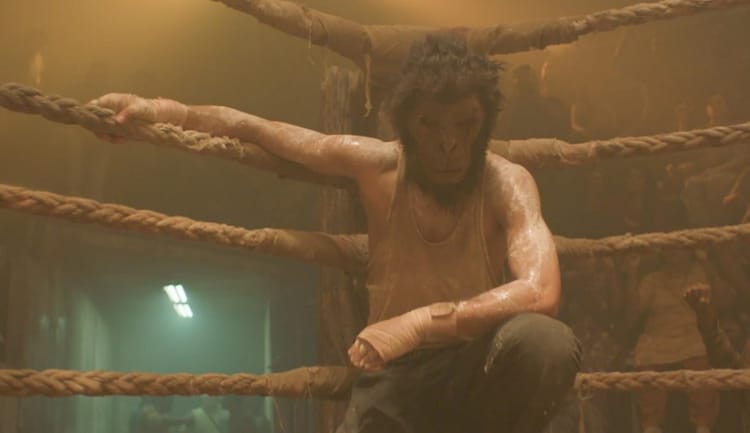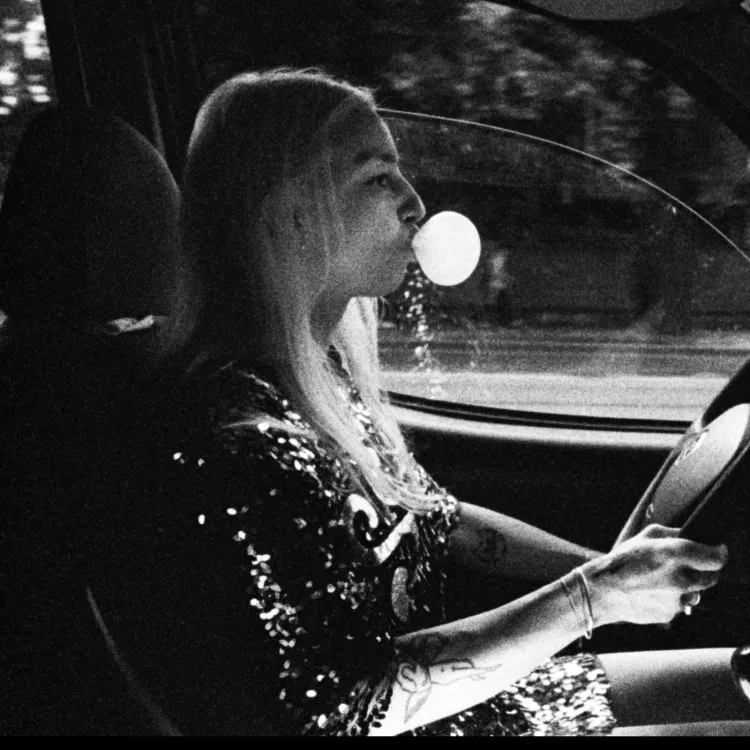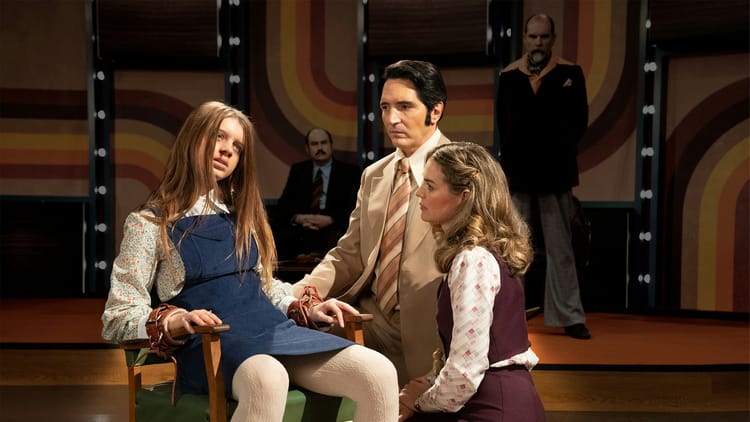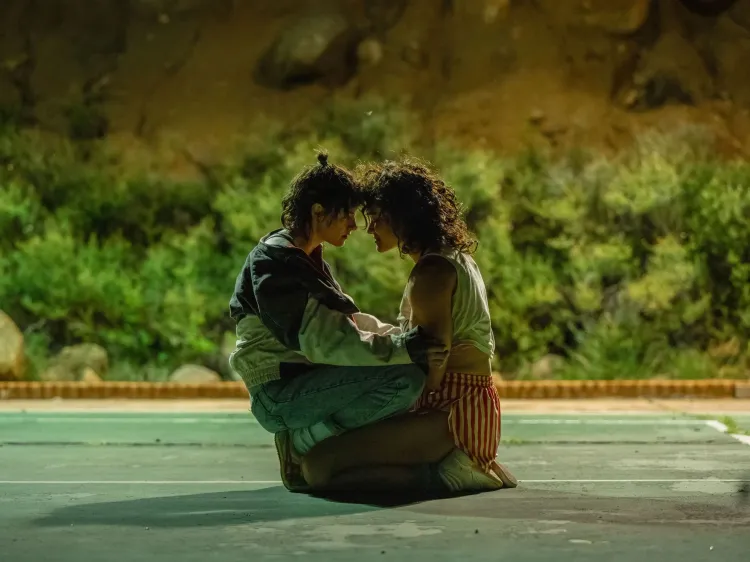Yan's 2021 in Movies
I watched more movies in cinemas this year than any other year. Bizarre behaviour in a pandemic, but when a monthly membership gives you three movies a week, you're going to find yourself watching most major releases (except Ghostbusters: Afterlife). So this year, for the first time, I feel qualified to pick my ten movies of 2021.
This is not a top ten, nor is it in any particular order. That's too difficult. Rankings necessitate unnecessary comparison and exclusion, and I'm not about that. My ten movies of 2021 are about inclusion, about the varied genres I watched this year, what has stuck with me, and what I know I'll still be thinking about in a couple years. This isn't about the most technically proficient films of the year, the most award-worthy. They're my movies for 2021, whatever that may mean. So don't get mad.
10) Dune: Part One
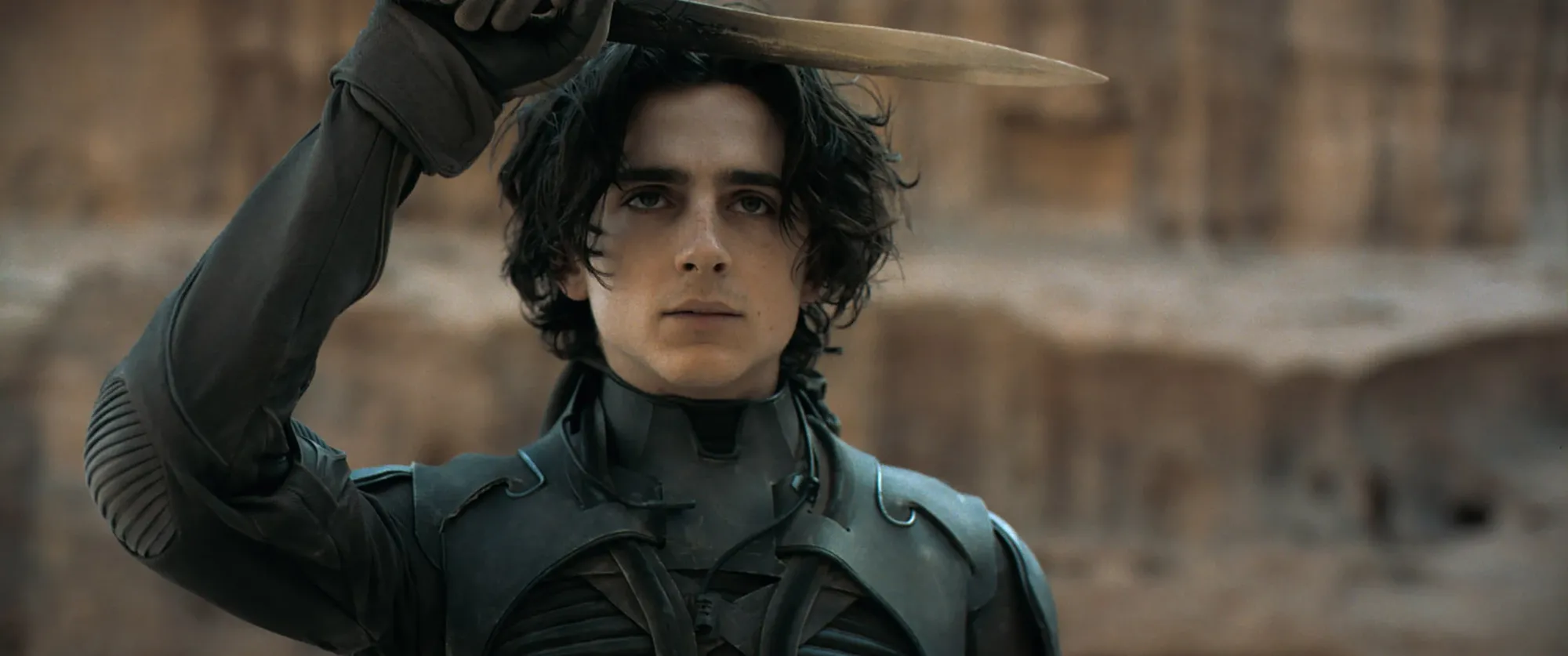
The word "unfilmable" was thrown around when Villeneuve's adaptation of Dune was announced. And with good reason. The book is sprawling, detailed, and at times, bizarre. Frank Herbert's Dune is about a boy given great power, a political war spanning across galaxies, a colonized people's subjugation and rebellion, and worms. Very big worms.
Herbert's vision of Dune contains multitudes and is almost anthropological in scope. That was my worry, that Hollywood would streamline Dune into its most palatable parts, stripped of the idiosyncrasies that make it special.
Instead, Villeneuve's Dune happily revels in the complexities of Arrakis, the emperor, the Sardukar, Duke Leto, the Bene Gesserit. What Herbert does in pages and pages of description, Villeneuve gives with single shots, frames of trees swaying, broken statuettes, or the desert of Arrakis. Despite the odds, Villeneuve made Dune not just filmable, but very very watchable too.
Because Villeneuve wisely chose to split Dune and Dune Messiah's massive plot into three parts, Dune: Part One does feel a little incomplete. How we regard this film in the future is determined entirely by Part Two, in particular for me, how it depicts the Fremen, the characters I consider the most compelling in Herbert's Dune. But for now? Villeneuve moved a mountain and people still went to see it, so for now, Dune: Part One is one of my ten for 2021.
More of Nestor Kok and my thoughts on Dune here.
9 & 8) The Green Knight & Spencer
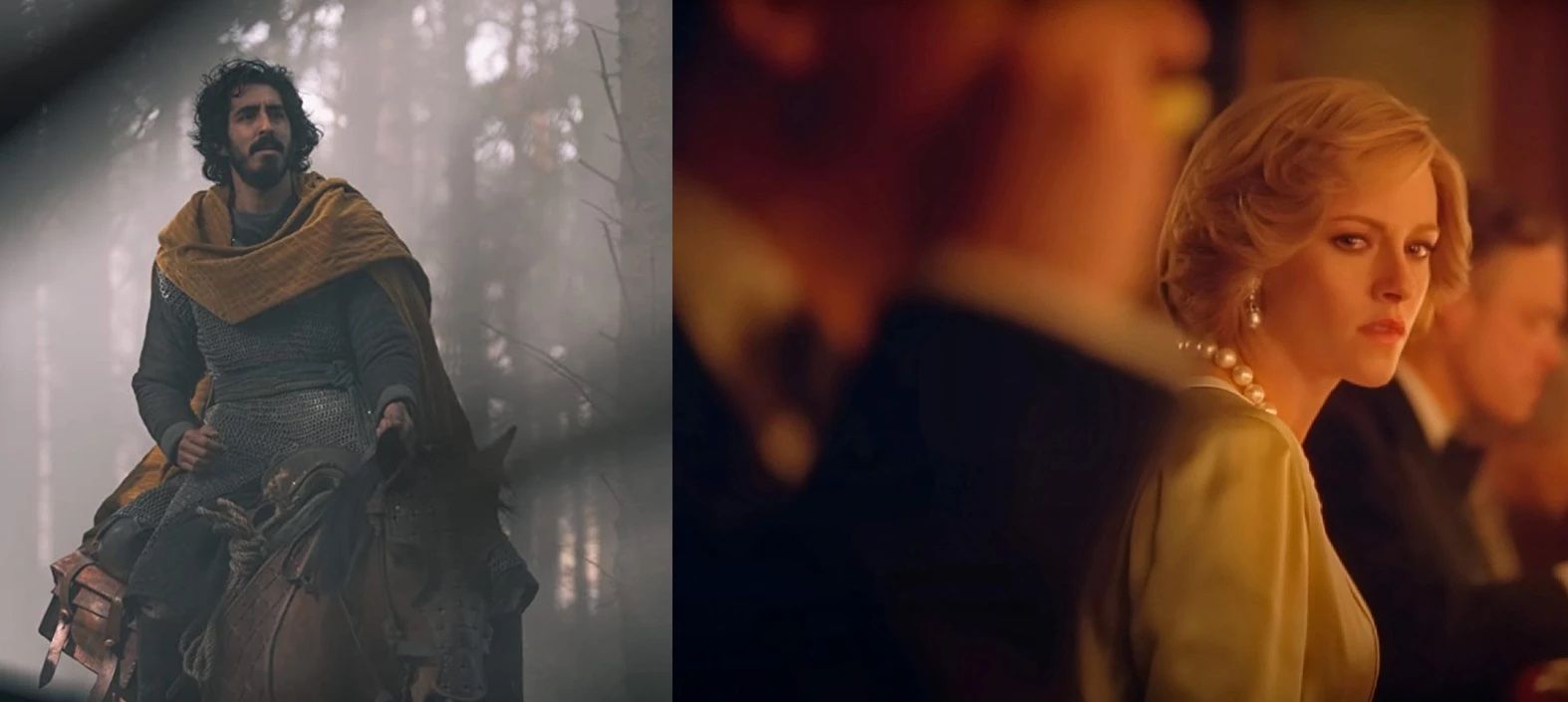
Why am I pairing these movies? Several reasons. They are frightened by monarchies and destinies. They both feature incredible performances from their leads. They take place in bleak and frightening worlds, inhabited by both horrifying creatures and kind people alike. They utilize montages to complete their protagonist's arcs, montages that have been playing on loop in my head for months now. They both have Sean Harris. They both made me relate to a situation I don't think I'll ever be in, whether that is throwing myself beneath the blade of the immortal knight I beheaded a year prior, or being Princess Di. They both overcome the distance between the audience and their characters, by telling deeply emotionally resonant stories, about fear, insecurity, legacy. They are both movies I will definitely go back to very soon.
More of my thoughts on Spencer here.
7) The French Dispatch
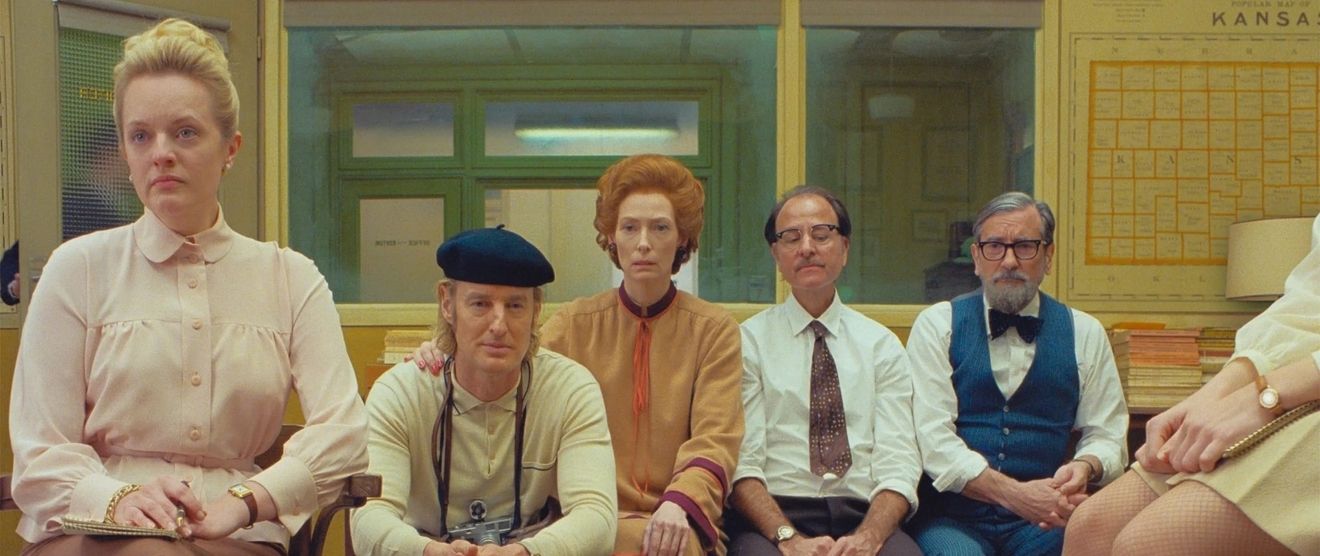
This is Wes Anderson at his most Wes Anderson. This is also my current favourite Wes Anderson movie, usurping the long-running champion, Fantastic Mr. Fox. It is Wes Anderson's least accessible movie, jumping through stories, mediums, actors, with only the thinnest of connections. But that connection, the spine binding together the French Dispatch, makes the entire movie. It is Wes Anderson's tribute to The New Yorker, and his tribute to artmaking in general. It was a movie that after watching, I went for an hour-long walk in Millennium Park along Lake Michigan, recording a voice note that I would transcribe and only slightly edit to make into my review. So much of this list is determined by moments I know I will remember. The final scene of this movie, where the writers of the French Dispatch, many of them defined by their isolation, gather to craft something together is not only a scene I know I will remember; it is one I actively seek to create in my future.
More of my thoughts on The French Dispatch here.
6) The Last Duel
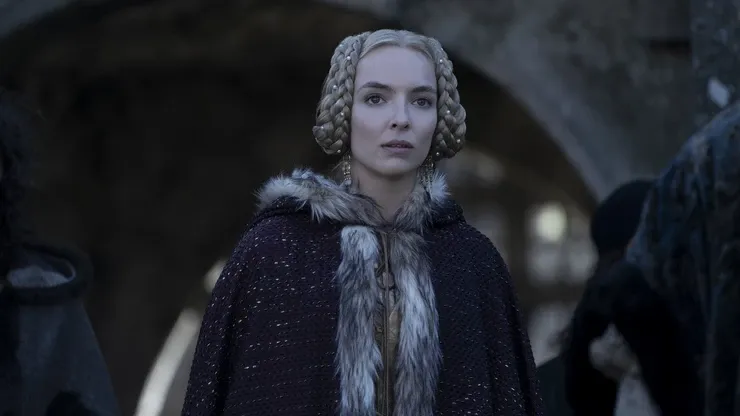
I saw the trailer for this movie before almost every film I saw in the second half of this year. You add that up, and I spent about an hour watching the same trailer for The Last Duel before ever watching The Last Duel. And I hated that trailer. It screamed of Hollywood executives attempting to capitalize on the discourse regarding sexual assault, by centering two male characters in this historical drama.
The trailer is one of the greatest injustices of film in 2021, completely failing to sell The Last Duel's premise. The film tells one story three times, from three different perspectives. First, there is Matt Damon's Sir Jean de Carrouges, an insecure, proud, and vindictive man, who falls from grace. Then, there is Adam Driver's Jacques Le Gris, a calculative, lecherous, and barbaric lord, rising in the courts of medieval France. And the last of the trio: Jodie Comer's Lady Marguerite de Carrouges, forced into marriage with Carrouges by her father, and later assaulted by Le Gris.
Now you're wondering. Why on earth is this in my ten? It sounds like a textbook case of blockbuster blindness and exploitation. But Ridley Scott avoids every potential pitfall, by making no mistake of whose movie this is. This is firmly Lady Marguerite's movie. Yes, she, as a character, is often rendered powerless. But she is the character who controls the narrative, the only person capable of telling us the truth.
The screenplay by Nicole Holofcener, Matt Damon, and Ben Affleck (who also plays the lascivious Pierre d'Alençon in a career highlight performance) never falls into tired narratives of progress or preachiness. I feared the film would constantly be winking at us, either saying, "look how far we've come!" or "look how little we've changed!" But it manages to sidestep questions of timeliness, by letting the film's characters drive the film's narrative. Even in the scene featuring Lady Marguerite's inquisition by the church, the film mirrors our present without compromising its reality or characters.
Throughout Lady Marguerite's story, I was literally at the edge of my seat. Then when the fate of these three characters careens into each other in the titular last duel, the entire audience joined me at the precipice. We were only released from the movie's stranglehold in its final five minutes, with the audience letting out a collective exhalation, gasps, and more than one person saying "Oh my god". Because by that point in the film, Ridley Scott somehow had us enthralled in his historical drama about the final recorded legal duel in European history. So much of this list is not about the movies in and of themselves, but about the context they were released, the discourse they were participating in, the expectations they shattered. The Last Duel surpassed every single one of my expectations.
5) West Side Story & Tick Tick Boom
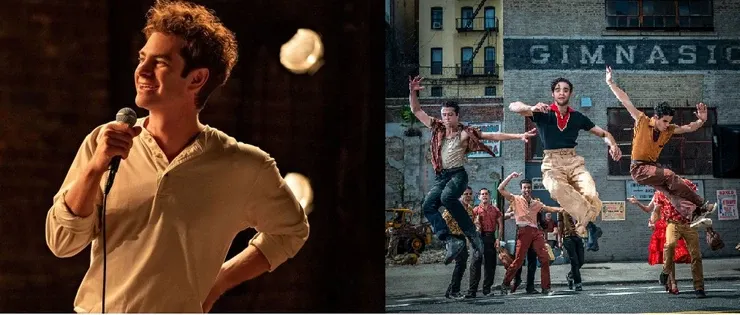
I am 100% cheating here! I've put two movies as one item in my top ten movies but what are you going to do? Report me? To whom? Lin Manuel Miranda? Steven Spielberg? Officer Krupke?
I couldn't pick between the two. That's like making me pick between my two children, or Godzilla vs. Kong.
Tick Tick Boom is a love letter to one of the greatest musical minds of our time, honouring a classic, featuring an incredible cast. West Side Story is similarly a celebration of a classic, with an amazing cast, just that it also, unfortunately, features Ansel Elgort. Both movies are not embarrassed to be musicals, nor are they limited by their medium. Tick Tick Boom deftly merges the conceit of the one-man show with Jonathan Larson's life; West Side Story rearticulates the 1961 classic, presenting a fuller version of the film's New York City, giving the Puerto Rican characters their due, without losing any of the original's exuberance.
If it wasn't for the tragic loss of Steven Sondheim, this would have been a great year to love musicals. But these two tremendous movies are a tribute to the man, without whom neither of these stories would have ever been told.
More of my thoughts on West Side Story here.
4) Bad Trip
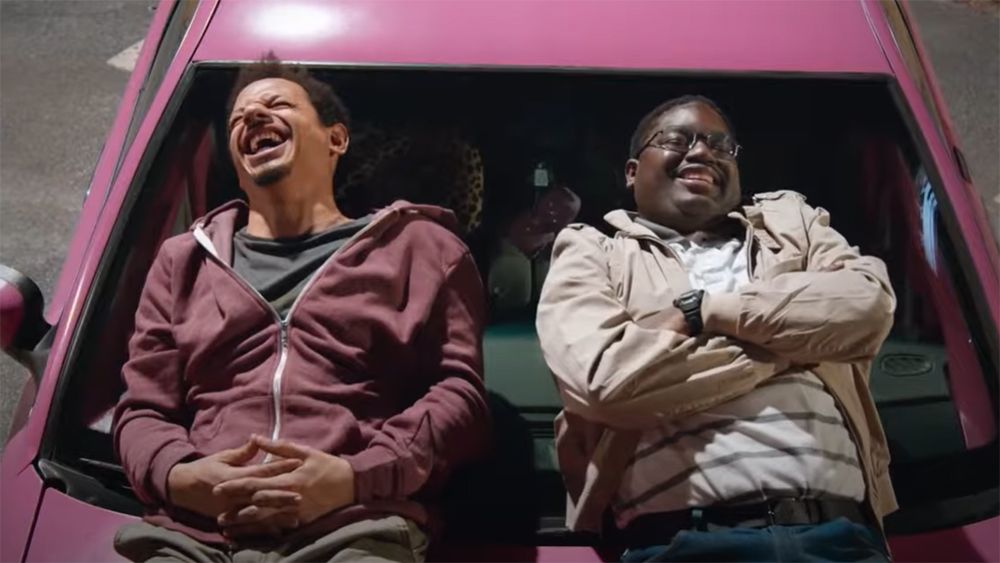
This movie is vile, horrifying, and very very often, nauseating. It features dismemberment, vomiting, defecation, nudity, a Chinese finger trap connecting two men's members, an extremely unsettling encounter with a gorilla, and Eric Andre. This is a genuinely disgusting movie.
And it is somehow also, incredibly sweet. There are MULTIPLE moments in Bad Trip, floating among the bodily fluids, where people are unreservedly kind to one another. And not to be trite, but also to be trite, in a year continually defined by cruelty and apathy, it was heartwarming to see people actually care about the wellbeing of a stranger. Heartwarming. If you have ever seen anything by Eric Andre, you would never think his work could be described as "heartwarming". But Bad Trip defies everything it should be. It is a vulgar prank-centric movie, that somehow, made me feel good about the world.
It's a little too long, and often, a little too gross for my taste. But I've basically already watched this movie three times this year, showing it to anyone who would watch it, or at least segments of it, with me. It's a genuine delight, with the right guide. I can't recommend this movie in full in good conscience to anyone, but with the right driver? Bad Trip is a good time.
3) Judas and the Black Messiah
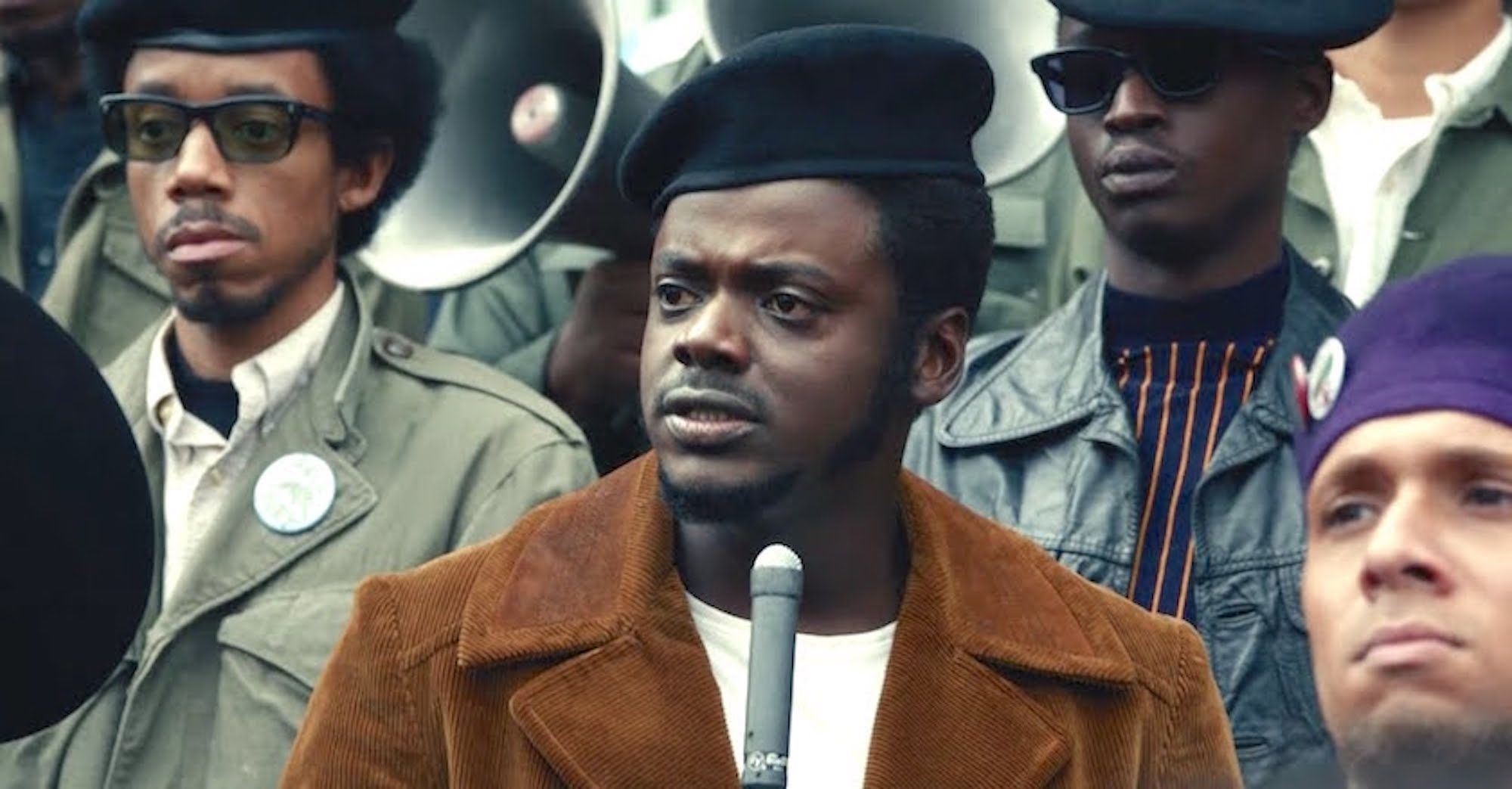
In no other year would I have included as many historical dramas or biopics as in 2021. But Shaka King's Judas and the Black Messiah can't be denied. It is several pitch perfect performances, a compelling story, told stunningly with the full force of its real-life tragedy. Daniel Kaluuya's charisma and sincerity ooze through the screen; LaKeith Stanfield gives us desperation and cowardice with his spineless Judas. But neither are caricatures or archetypes, they are playing men in their fullest, with their flaws, their insecurities, their motivations all behind the eyes.
This is a movie about injustice, made only more painful when you know it is based on truth. It wears its politics on its sleeve, impossible not to do when telling the story of Fred Hampton. But you can easily imagine a movie where Fred Hampton and the Black Panthers' story is diluted or simplified to satisfy the machine. In some ways, BlacKkKlansman is that movie, which, though decidedly compelling, needs the good guys to win thanks to the help of the police. BlacKkKlansman does shed this simplicity with its frightening documentary epilogue, but throughout its runtime, Judas and the Black Messiah makes no mistake on who its enemies are. Shaka King is not afraid of who he alienates, who he offends. Because like any good manifesto, Judas and the Black Messiah is strong in its delivery, its wording, its message.
2) The Fear Street trilogy
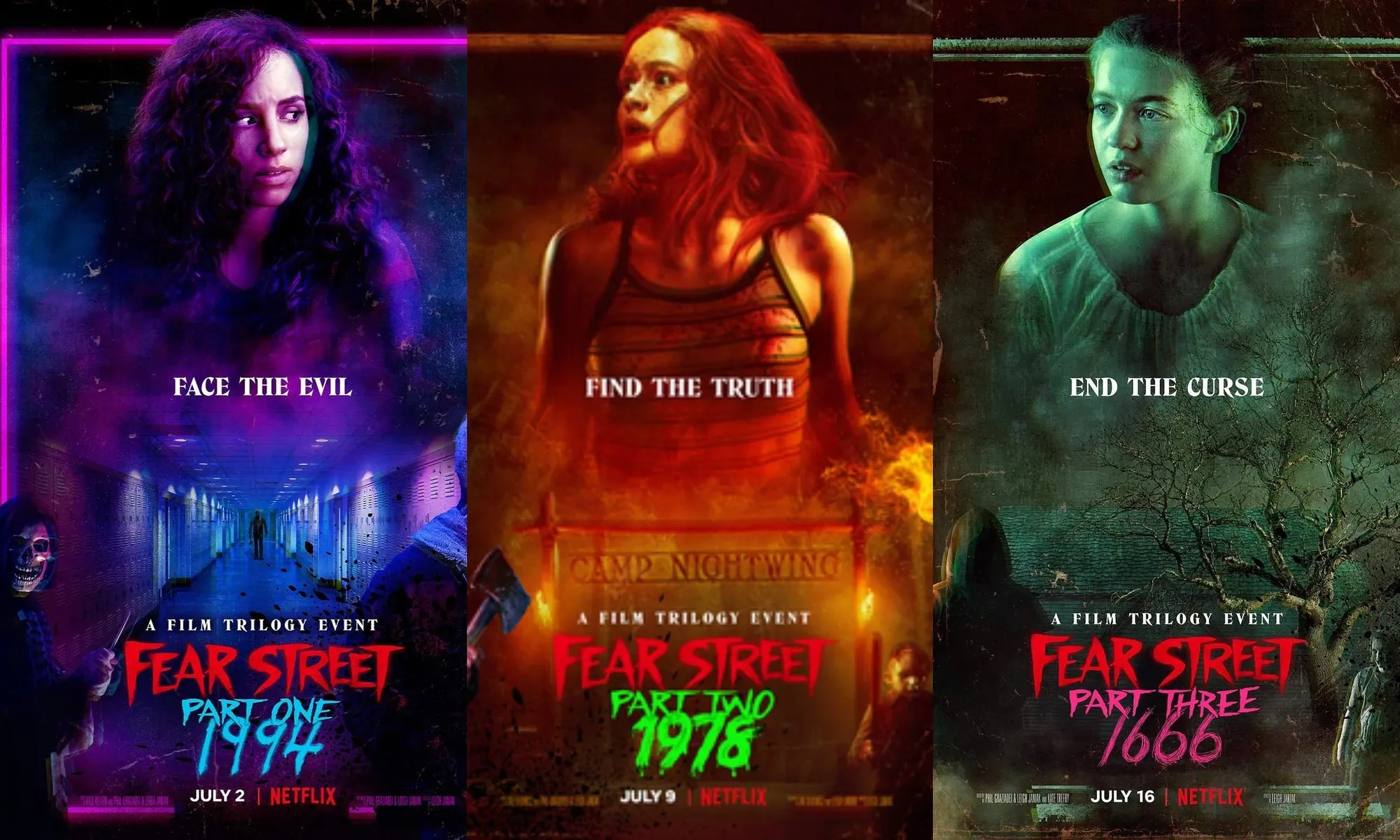
Yes. I'm cheating. Again. And this time, I'm bold enough to stack three movies together. But I can't split these three apart. Fear Street 1994, Fear Street 1978, and Fear Street 1666 have to be treated as a complete package. Because that is what they are. Its cast rotates around, its plot cuts through all three, and most importantly, its tone is delightfully and bloodily consistent.
At its surface, Fear Street is masquerading as a B-list horror series about a small town ravaged by a plague of serial killers. But its delivery elevates it, not by pretending to be something clever, but by knowing exactly what it is. It is about teenagers fighting to save their town from a bunch of whacky killers. There are going to be several teenage romances, they are going to set homemade traps, there is going to be a showdown in a mall. And every minute of it is a romp.
There are three things about Fear Street outside of the films themselves that make them special. Firstly, its titles. Fear Street 1994, Fear Street 1978, and Fear Street 1666. I'm not putting that in the wrong order. This trilogy goes backwards in time, and it's going to have fun doing it. When my friends and I were putting it on, we were convinced Netflix had uploaded it in the wrong sequence. And that's my second point. Like any horror schlock, it is not meant to be experienced alone, pondering its deeper themes and messages. Instead, it is for shouting, screaming, and having generally, a raucous time with your friends. The social experience of watching these movies is bolstered by my third point: Fear Street's release schedule. Netflix, not known for its ingenuity, designed a viewing experience unlike any other. Each movie in the trilogy was released on the streaming platform, with one week between. You could wait and you could binge it all at once. Or you could gather round, watch the first, debate your theories for a week, see your hypothesis unravel in the second film, throw out new conspiracies before the third, and then watch the finale together. It's rare that we are treated to a new way of watching a movie. For that novelty alone, the Fear Street trilogy takes a spot on my list.
1) No Time to Die
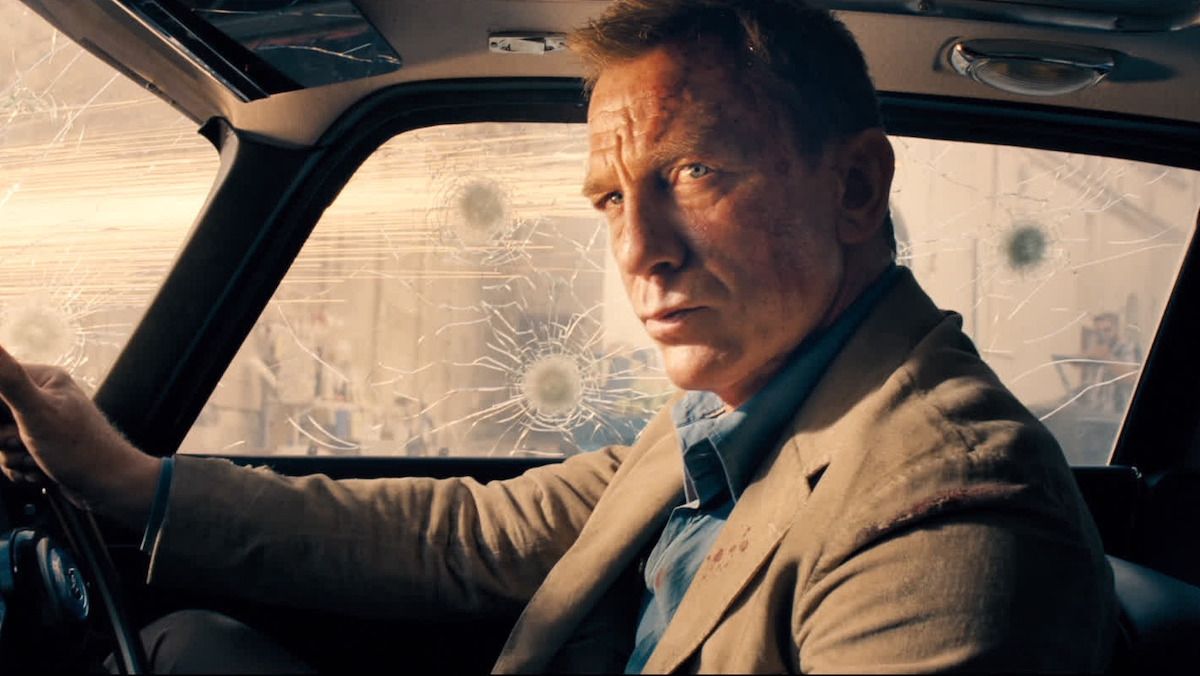
With every passing year, franchise instalments become more and more limited by their sluggish inertia, their inability to work outside of the larger money-making goals of their overlords. But Daniel Craig's James Bond films have stuck to their guns, making movies that are not determined by what comes next, or the prequels that can be generated, or the spin-off prestige TV show that can keep the money flowing. These films are not shaped by what comes next, but what has come before. In particular, they're driven by the man James Bond was and is. No Time To Die is the natural culmination of Daniel Craig's Bond, a series that has, despite its roots, been about trauma, healing, and growth. Yes, there's shootings, car-chases, gadgets, occasionally sex, and maybe slightly too many dead women, but Craig's Bond tenure has forever altered the benchmarks about what a multi-movie mega-franchise can do with their characters.
More of my thoughts on No Time To Die and Daniel Craig's Bond here.
0) Godzilla vs. Kong
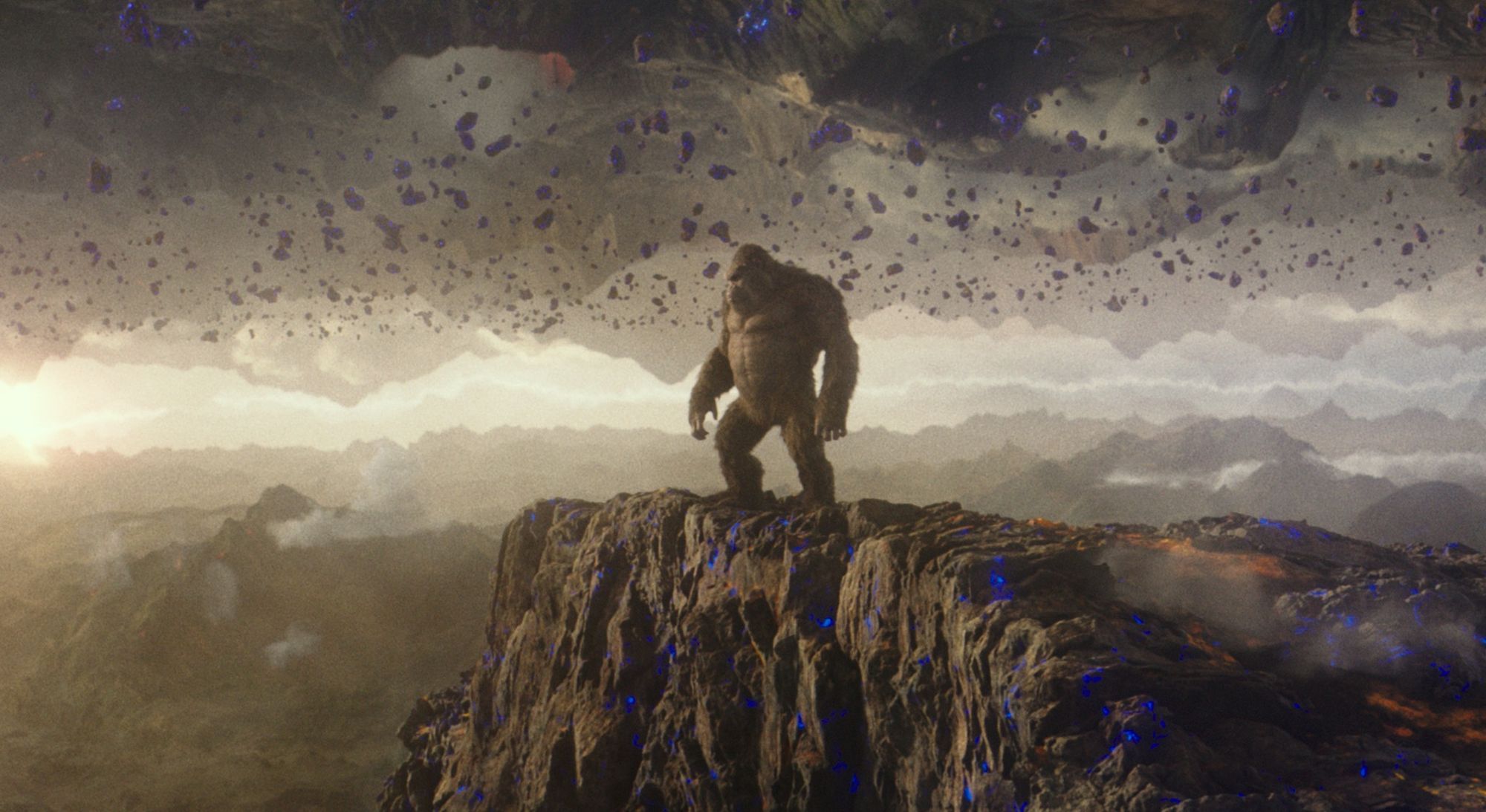
I will not explain myself. Not at all. This is my list and you can't stop me.
I will say this, and only this: nothing can convey the depth of the laugh that left my body when this movie opened with Kong standing up, stretching, wading into the water, before scratching his butt.
And that's my ten (fifteen in actuality). 2021 was a weird year. I moved cities, the pandemic overstayed itself, the climate crisis continues to loom over our heads. So, I broke the rules. Because who cares? Movies are subjective, and so is my list. Every experience with them is personal. I won't forget realizing my manuscript had been rejected the exact same moment Jonathan Larson discovers no producers want his play in Tick Tick Boom. I won't forget going through all of Daniel Craig's Bond movies in a week, and tearing up at the end of No Time To Die, feeling like I was saying goodbye to my best friend at summer camp. I won't forget five of my friends squinting and pointing, trying to figure out what was lurking in the shadows on my friend's subpar TV when we watched Fear Street: Part Three 1666. I won't forget the feeling of seeing Dev Patel, a brown man, play the lead in a fantasy movie that has nothing to do with his race.
So again, this is my list. It's tainted by my life, my experiences, my love of King Kong. And I wouldn't be able to write it any other way.
Movies I wanted to catch but didn't manage to, because AMC doesn't care about anything that isn't a blockbuster:
- Titane
- Saint Maud
- Harder They Fall
- Card Counter
- Licorice Pizza
- The Power of the Dog
- Pig
The second hour of Red Notice---unfortunately, I passed away after the fifth joke about the Rock being bald.
